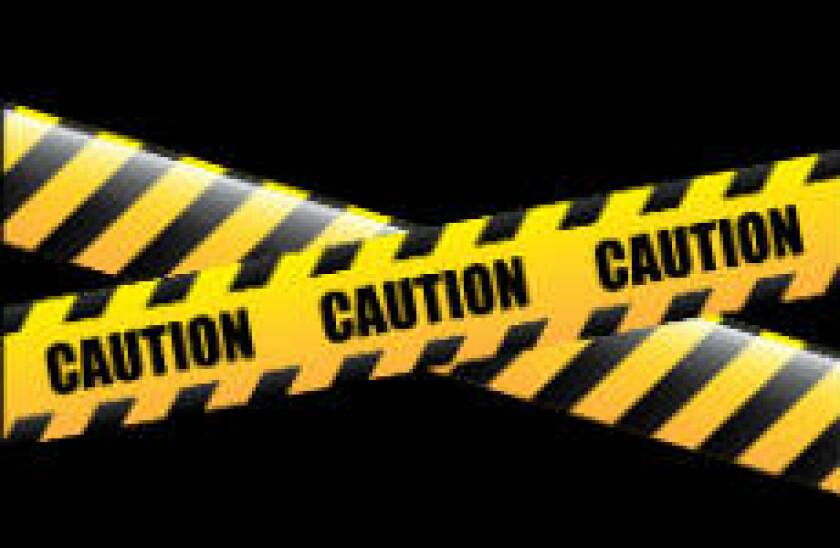What’s Ebola got to do with us, you may be asking? It’s not a capital markets issue. Maybe not yet, but it will be. And the sooner capital markets people turn their full attention to it, the better chance we have of limiting the damage.
Four thousand people have died in three poor African countries, a handful elsewhere. People die all the time in cruel and unfortunate ways. Why is this different?
As everyone knows, the disease is incurable, and fatal in 50% to 90% of cases. That already makes it different from most other infections. Then, it is not caused by environmental factors, such as drinking dirty water or mosquitoes, which can be tackled. A nurse has caught Ebola in the sanitised environment of a US hospital. Many medical staff in Africa have caught the disease, despite taking very careful precautions.
But what really matters is the speed of its growth. The propagation rate of the disease is about 2. That means every new person infected is infecting about two other people. Until that rate is brought down to 1, the disease is growing. And this propagation is happening incredibly fast, because the disease only lasts about three weeks.
The number of confirmed cases of Ebola broke through 2,000 in early August. It crossed 4,000 at the beginning of September, and is now above 8,000.
Coming closer
The numbers may still sound small in a global context, and the vast majority are confined to three countries where most Westerners have never been and never will go. But at this rate of growth – cases doubling every month – the problem is not going to stay there. Once it gets into the big cities it is going to spread like wildfire and we will soon be up to millions.
Our only way of controlling this disease is care and isolation of the victims, using extremely labour-intensive methods to prevent contamination. Does anyone really believe we could cope with millions?
The most important graph for capital markets this year
|
There is absolutely no point saying “it’s only in Africa”, or thinking it can be kept there – even if that was a morally acceptable attitude, which it plainly isn’t. Everywhere people have it, new infections are being created, and it will not stop.
If cases double every month, that means the cost of beating the disease is also doubling every month, and the chance of beating it halves.
Wake up, world
It’s not clear that world leaders have really understood this yet. Last week at the IMF meetings in Washington, where there was plenty of focus on Ebola, George Osborne, UK chancellor of the exchequer, referred to the “horrific disease of Ebola”, conflicts in the Middle East and the Ukrainian crisis – but said “the biggest risk to the global economy at the moment and certainly the biggest external risk to the UK is the risk of the eurozone falling back into recession and into crisis”.
He could not be more wrong. That – and even the Middle East and Ukraine crises – are second order risks. If Ebola is not stopped, we will not have an economy.
We can send troops and doctors and have positive images on TV and news websites about what is being done. But until the number of infections stops rising, we are not winning, we are losing.
Only governments have the necessary resources and power to beat this crisis. It is vital that governments throw absolutely everything they can at the problem, as soon as possible, if we are to regain the upper hand. Money really cannot be a constraint. It is as important as a war of national survival, like the Second World War.
As one observer said in Washington: “They [Qatar] are spending $65bn on a football game [the World Cup] and the World Bank is having to scrape together $400m for Ebola…”
Markets creak into gear
Even with our heads in the sand, the market reaction is beginning. On Thursday, Bill Blain, analyst at Mint Partners, highlighted a fall of more than four percentage points in travel company Thomas Cook’s bonds as an Ebola-related move.
Ebola is a very different problem from the ones capital markets people are used to dealing with. It is not like economic life, where things tend to revert to the mean and self-correct. It is not like market crashes, where remaining confident can help to cure the problem.
We are dealing with a senseless and pitiless biological enemy. In this case, the risk is over-confidence. While case numbers are going up, there is no downside to exaggerating the danger. It can only mean we beat the disease more quickly.
You might say: we don’t want to destabilise markets and worsen the economic crisis — that’s not going to help. But market crashes tend to get people’s attention. If we’d had one on the Ebola news in May, we would probably be in a better position now. A bit of panic is no bad thing when people’s minds need focusing.
If markets go into a tailspin now, they will recover in time. The human race is rather more vulnerable.


